[ad_1]

Perilla seeds, fermented bamboo shoot, soy beans, coffee grown in the Garo Hills, smoked fish, a beautiful book by Anurag Banerjee, and some cook books.
My last stop before I fly back home from a holiday is always the fresh produce market. And when it is the incredible Iewduh in Shillong, Meghalaya — one of the largest and busiest markets in the Northeast — one must bring cloth shopping bags and an open mind. The sheer variety of wild foraged produce is mind-boggling. Then there are the seasonal sources of protein: silkworms, snails, grasshoppers, and the like.
Spring in Shillong is all sorts of beautiful and the market is thronging with people and produce. The local Khasis and people from the Jaintia and Garo hills have set up shops in the narrow alleys. I love the hustle: hawkers with carts piled high with local greens and herbs, woven cane baskets packed to the brim with rice, overturned crates serving as low tables, sacks spilling over with fresh turmeric, and brightly lit shops full of vegetables, fruits, spices and meats. There is a constant buzz of conversation and banter, all in a language that I don’t understand, which feels strangely liberating.
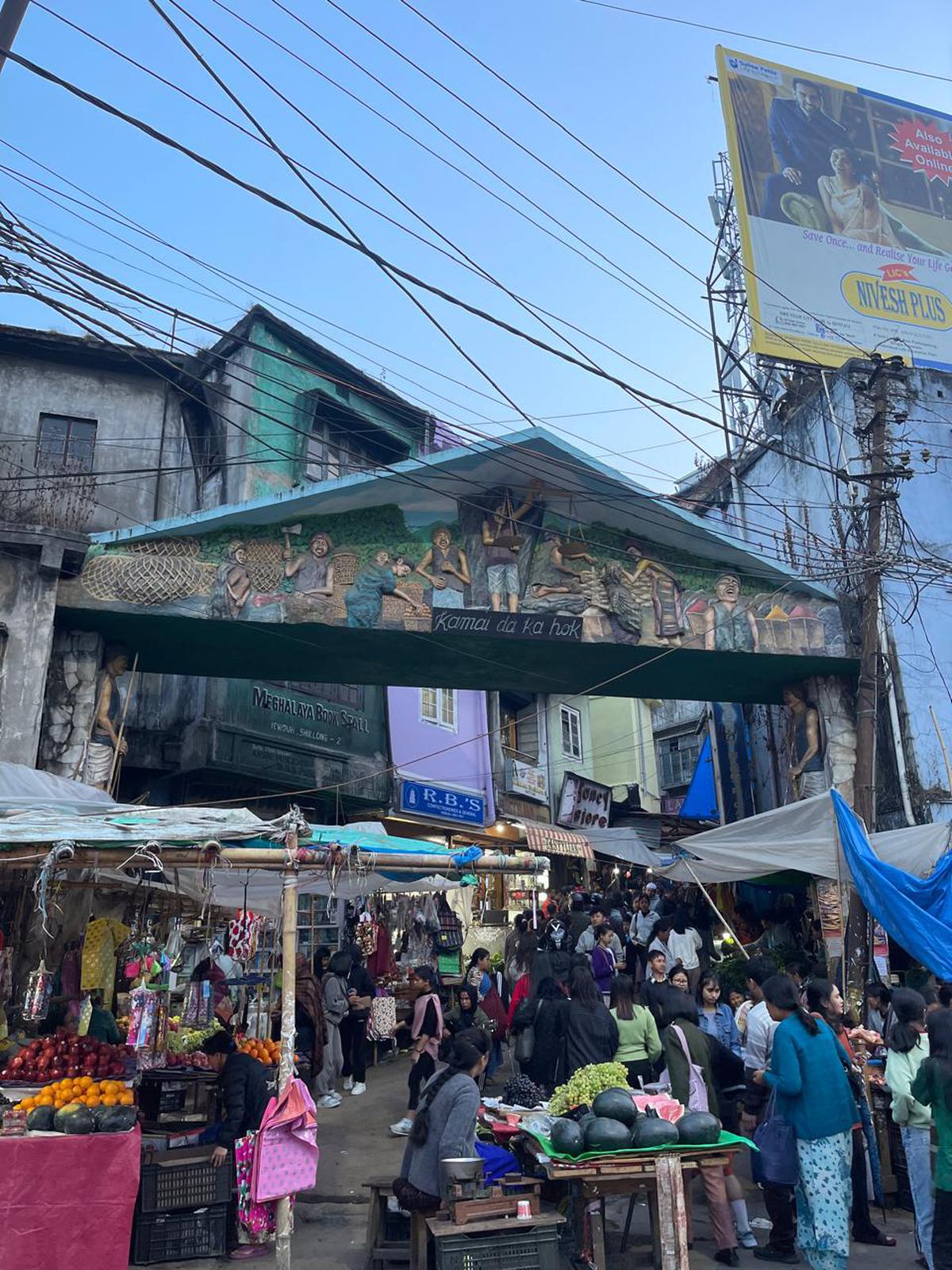
Iewduh market
It’s too crowded to be that person checking Google Lens to figure what’s what. I also only have so much space in my luggage. So, it’s time to make a plan. But first, a snack — something hyper-local and seasonal to munch on while exploring the market. Mulberries, because I can’t carry them home, and a handful of juicy, pale pink, seasonal sohshang berries that are delicious.
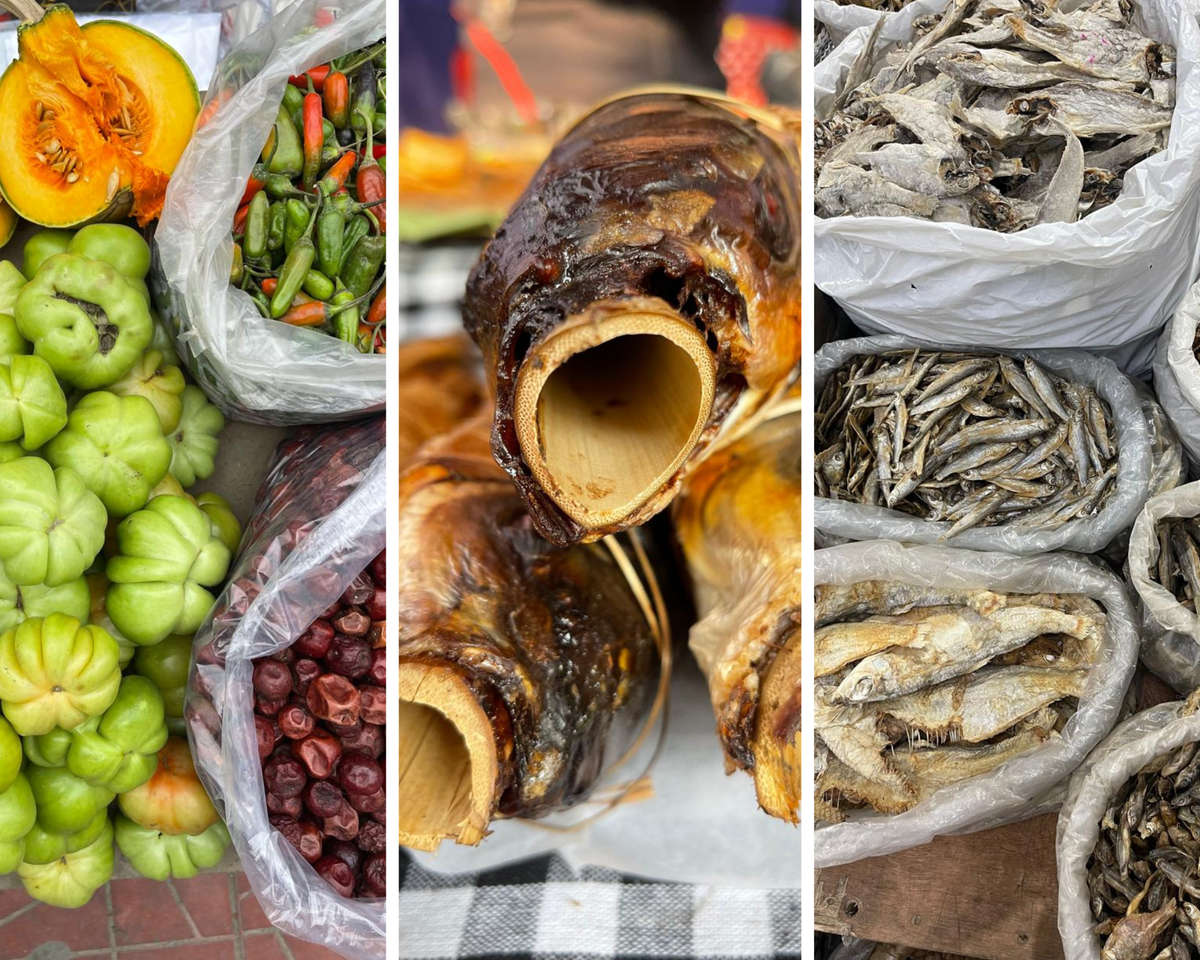
Stop 1: vegetables and herbs
There are stall after stall of vegetables and greens, and you don’t know half of what you’re looking at. The wild produce in the Northeast blows my mind every single time. Purple chillies, gnarly heirloom tomatoes, brinjals in shapes, sizes and colours I have never seen before — from long, tapering and almost black, to round and white — the tiniest red potatoes (can you tell I am obsessed with nightshades?). Typical of markets, all produce is measured in cups or bunches, and my bags start to fill up.
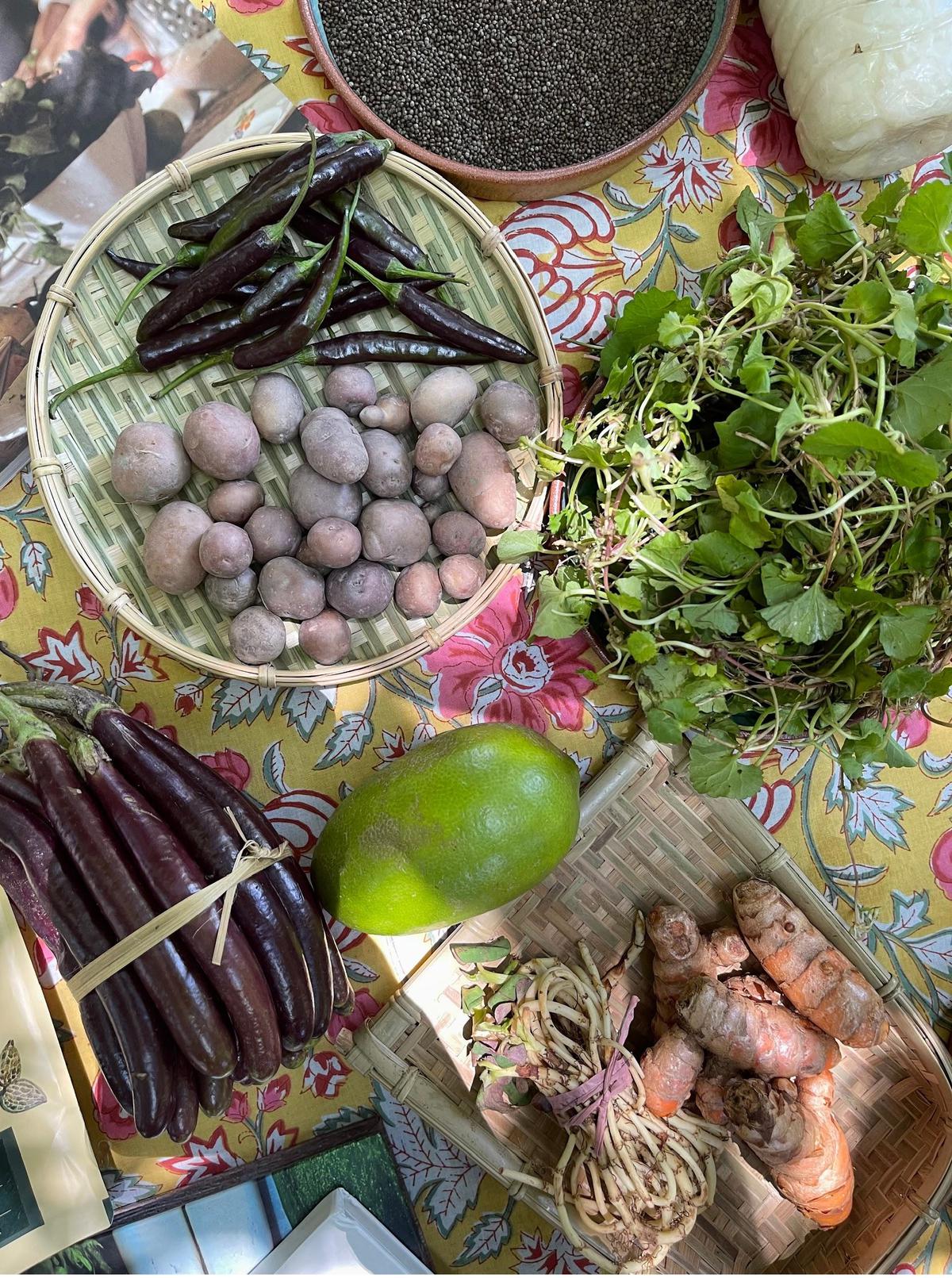
Some of what I brought back: the sweetest red potatoes, purple chillies, local varieties of brinjal, local lemon, fish mint roots, fresh Lakadong turmeric and Indian pennywort, which is eaten raw as a salad.
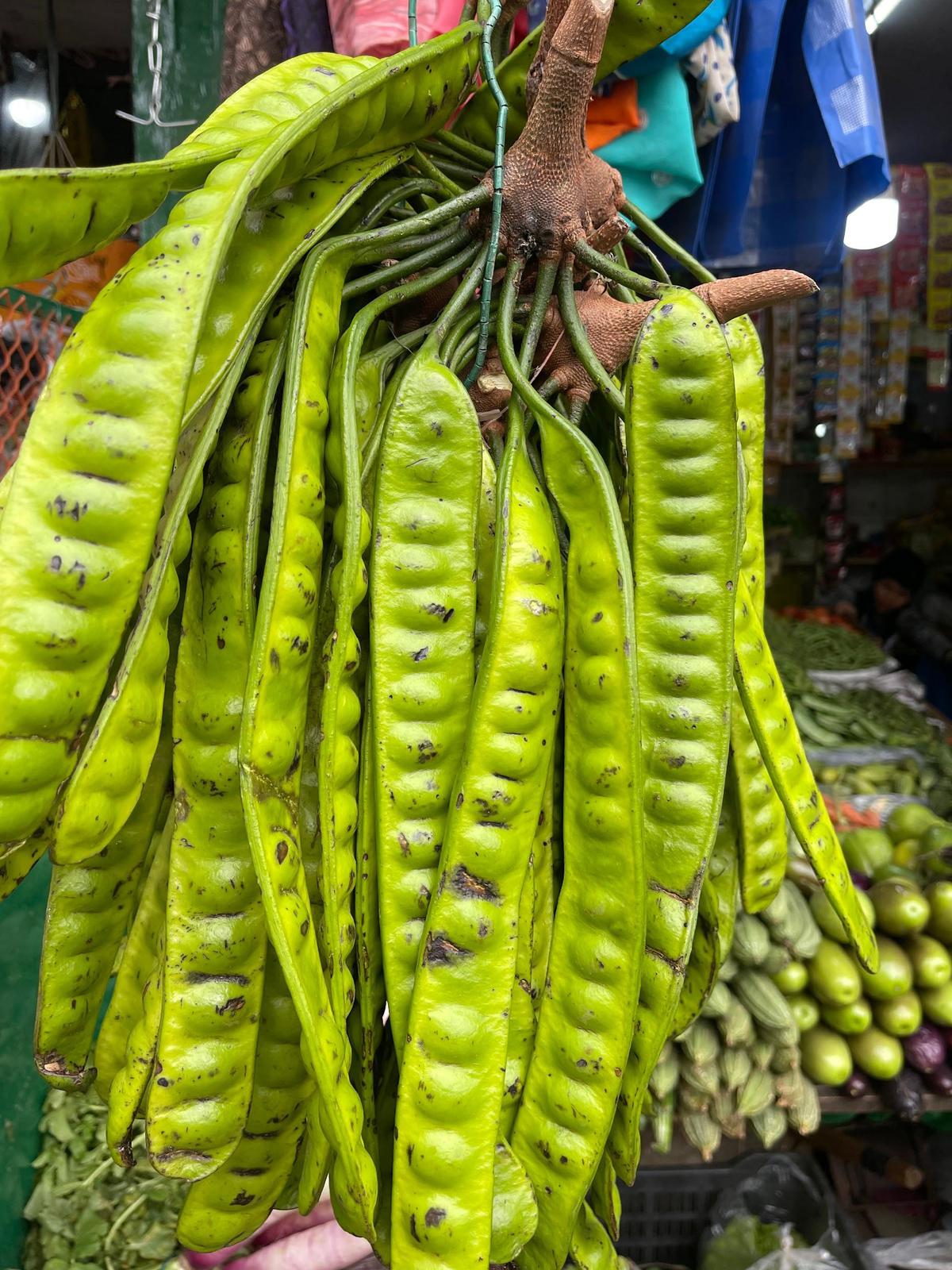
Hyper-local and wild produce is foraged and brought to the market daily. This is yongchak, commonly called stink bean. Prepared as a quick stir-fry, it is also known to have medicinal quantities.
The greens will wilt on their way back in my suitcase, but I feel I must try my hand at growing some of them. Tiny bundles of herbs such as fish mint and Indian pennywort, some roots, and fresh Lakadong turmeric go into my bags. So do fresh bay leaves. Oh, and a bottle of fermented bamboo shoots, too. Please don’t let it leak, I pray.
Stop 2: spices and dry provisions
The first time I visited a market in Meghalaya, in Cherrapunji, many moons ago, a lady gave me some pepper to try. She watched in glee, and cackled at my expression when my mouth started to tingle and go numb. Welcome to the magic of Sichuan peppers, locally known as jaiur. And my main spice purchase.
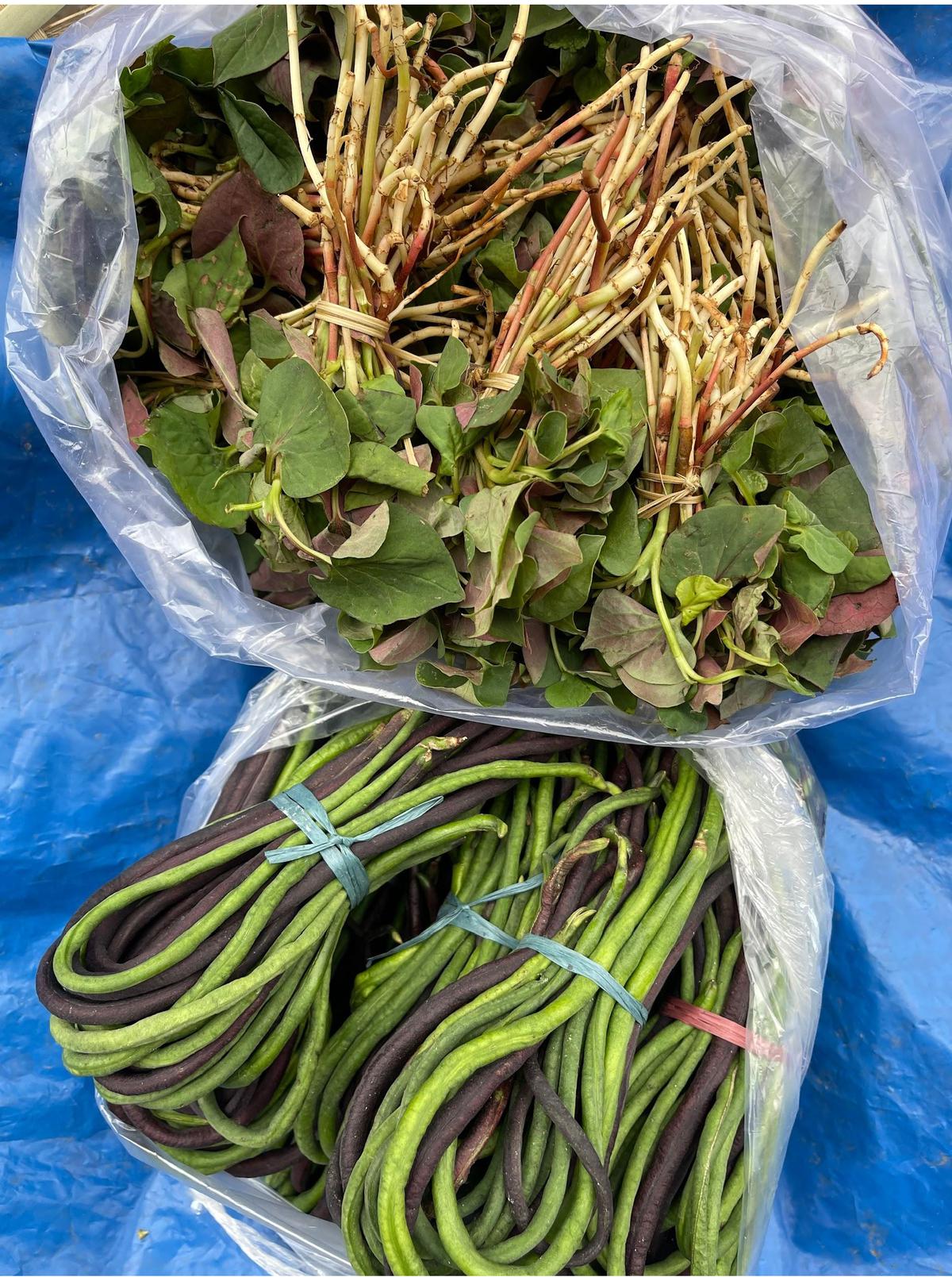
Fish mint, with its distinct fishy flavour, is a popular herb in Khasi cooking. The roots and leaves are used raw in salads, often paired with tomatoes and chillies.
It’s fast going among these stalls. I know what I want: some dried turmeric powder, perilla seeds to try and make one of their chutneys, perhaps the muli khleh (radish with perilla), black sesame, to attempt their iconic pork curry at home, and some local yellow chilli seeds and powder. I try to stop there, but then I buy three cookbooks.
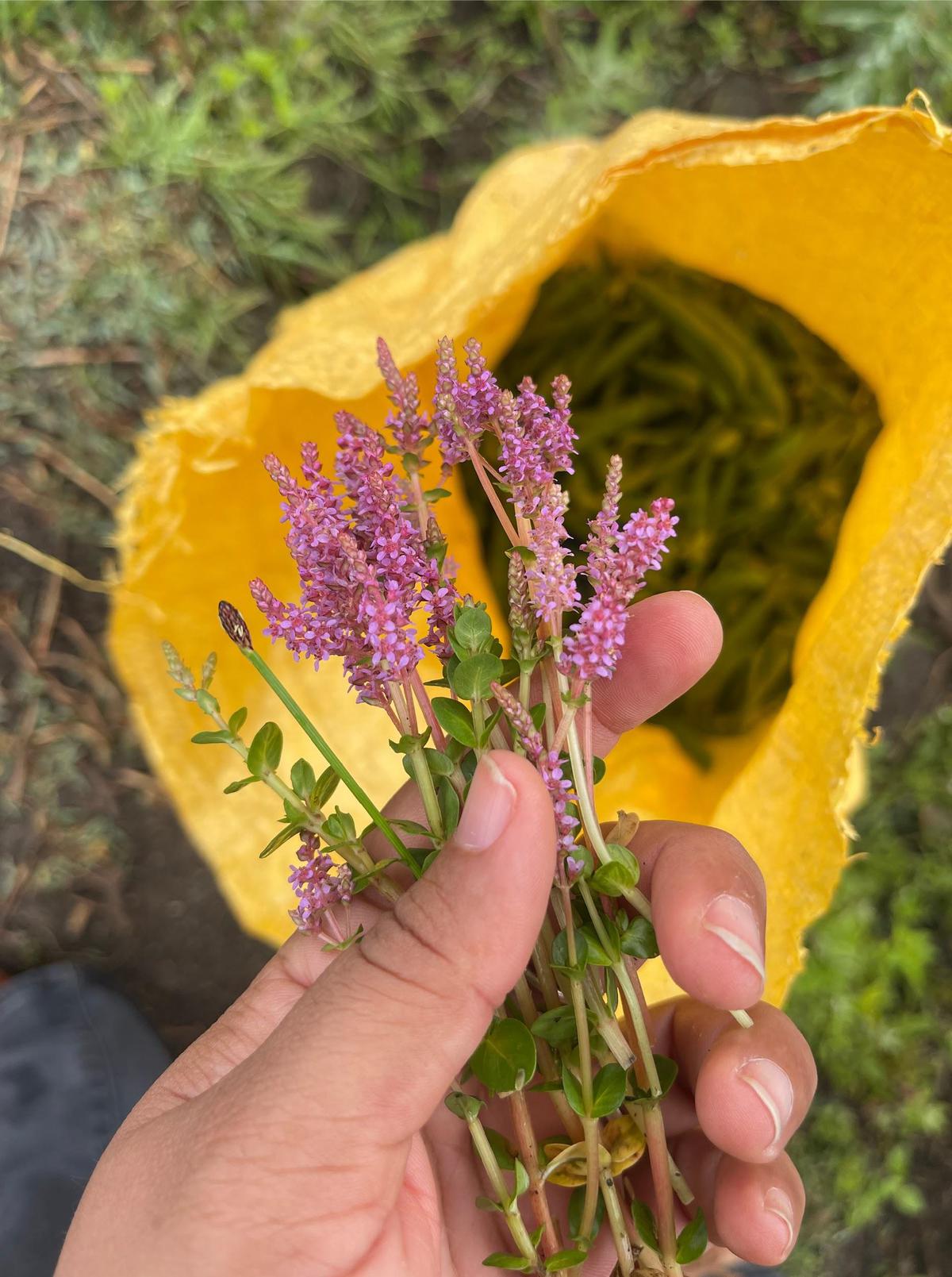
I was encouraged to pick wild edible flowers and bring them back home. I went to have a meal in a little village called Khweng, and spent some time harvesting green peas with the local women (seen in the yellow sack). These gorgeous pink flowers were everywhere in the fields.
Stop 3: meat and fish
You must be thinking, ‘Is she nuts?’ But no, the smoked meats in the Northeast are fascinating. Their flavour, texture and aroma are incomparable, and I love that they travel well. Into the bag go smoked pork and fish, and the dreams of many meals that can be rustled up with them.
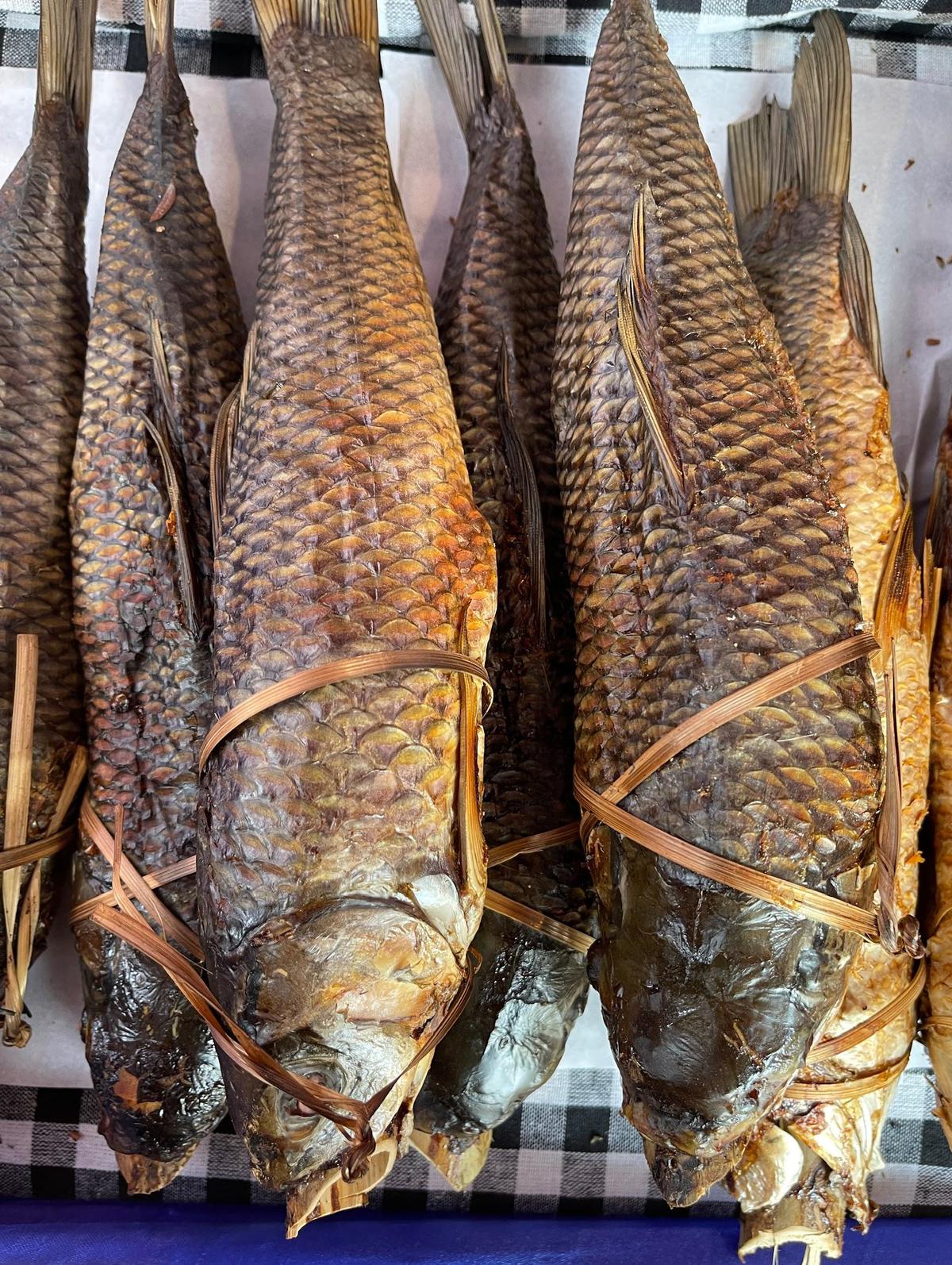
One of the coolest techniques adopted in the kitchens of the Northeast is the smoking of meat and fish. All traditional kitchens have a smoking rack above the fire place and meats are left for days, weeks and sometimes months, to dry age and take on a wonderful smokey flavour.
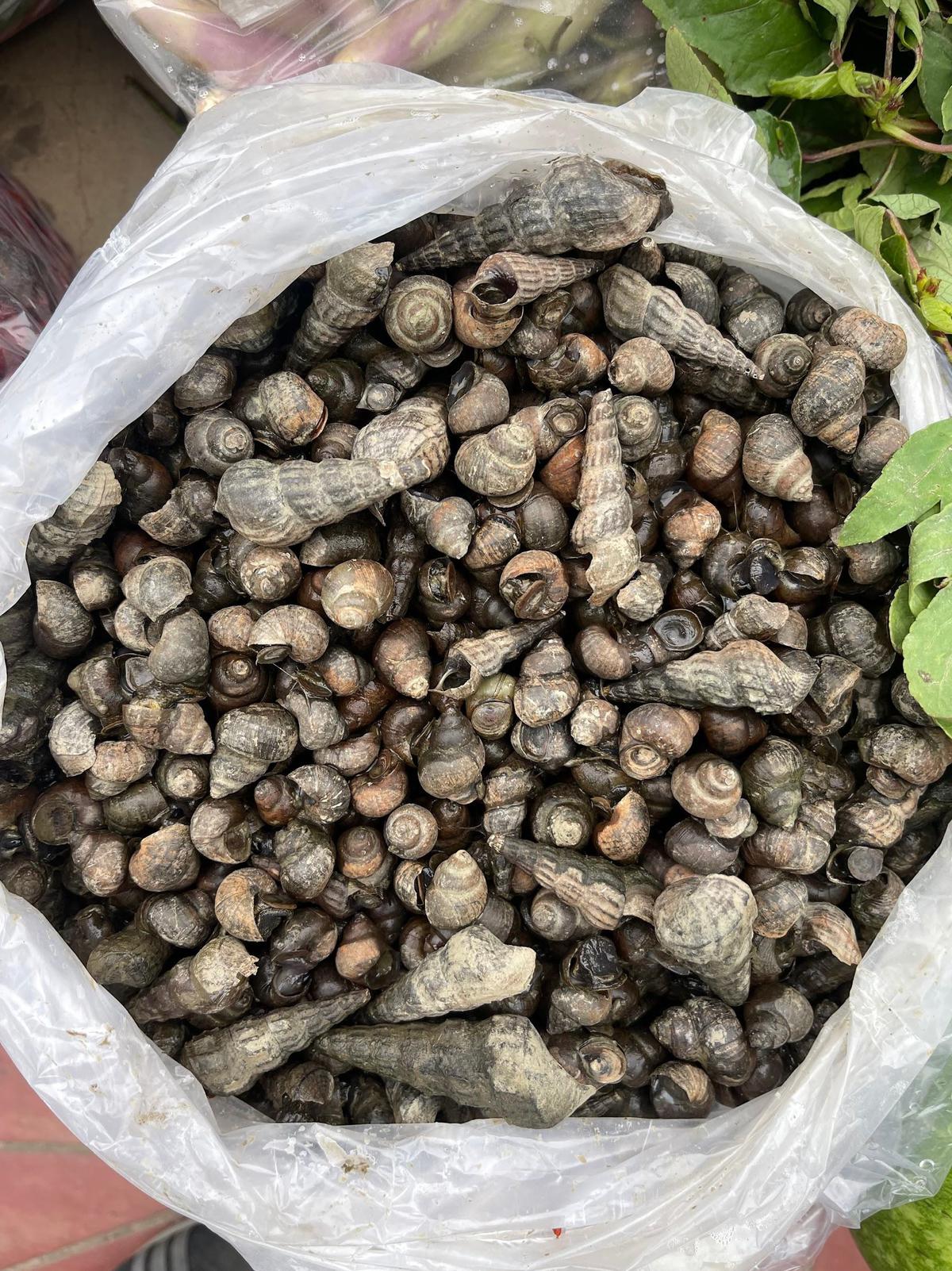
The various sources of protein that can be found in the market can come as quite a surprise. These snails are often caught in paddy fields. I have spent an exciting afternoon in Nagaland scooping up snails from the fields, cleaning them and cooking them along with country chicken. My policy with food has always been ‘don’t knock it until you’ve tried it’. They are delicious, FYI.
And finally
Somehow along the way, indigenous red and purple sticky rice grown in the Khasi Hills, a bag of beautiful white tea from the same hills, a bottle of the local brew chubitchi, a fermented rice liquor made in the Garo Hills, and some pottery handcrafted in the Jaintia Hills ‘accidentally’ fall into my bags. I went to Shillong with 12 kilos of luggage. I came back with 31. And almost everything is food or food-related
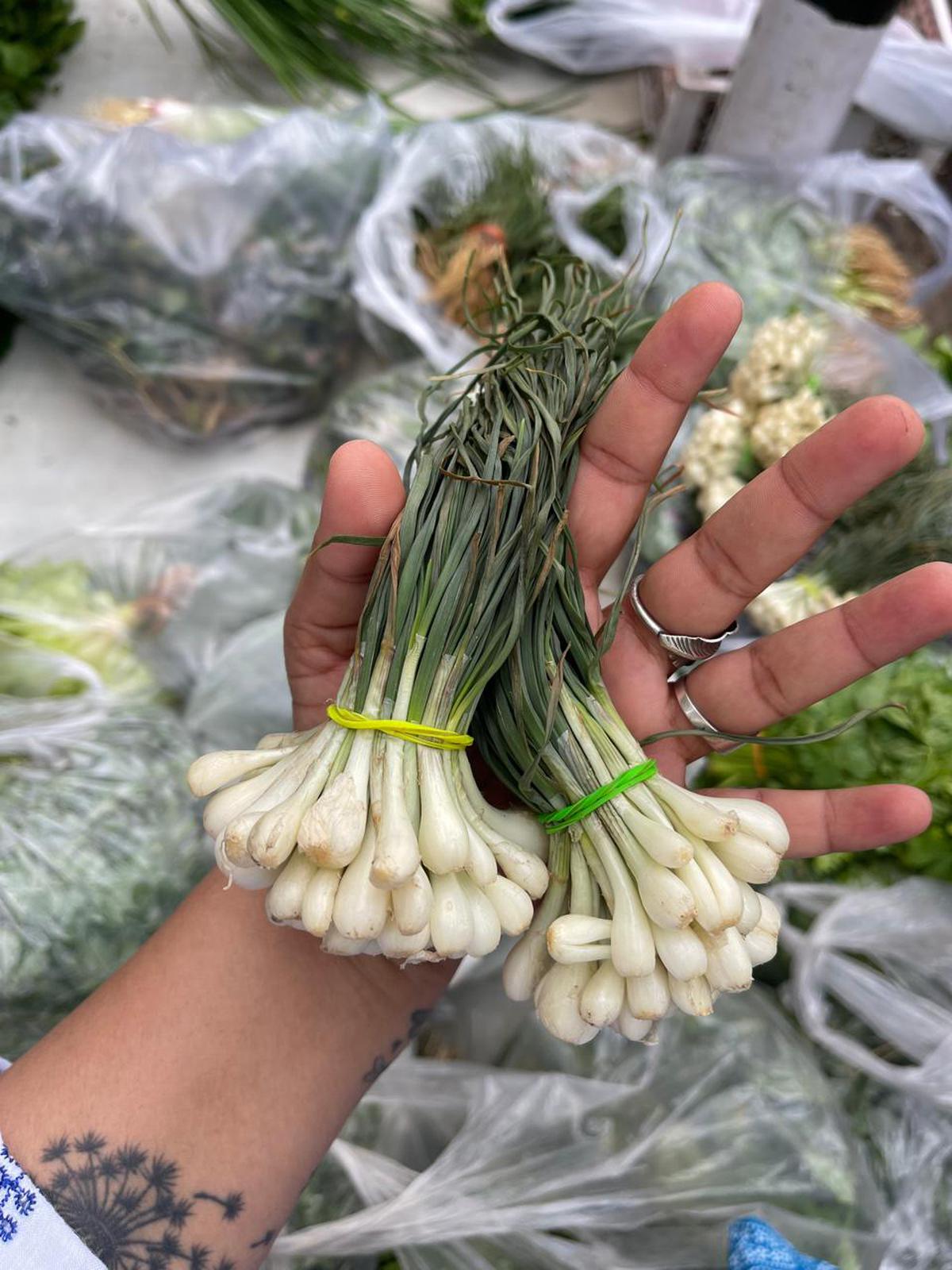
I have always maintained that food is our greatest common factor. It opens doors, encourages conversations (even if it’s in sign language), builds friendships and offers a deeply personal insight into a community, its people and their culture. As I stand in my kitchen in Chennai, looking at everything I have brought back, I cannot be more excited to hold on to this feeling and these wonderful flavours.
[ad_2]





